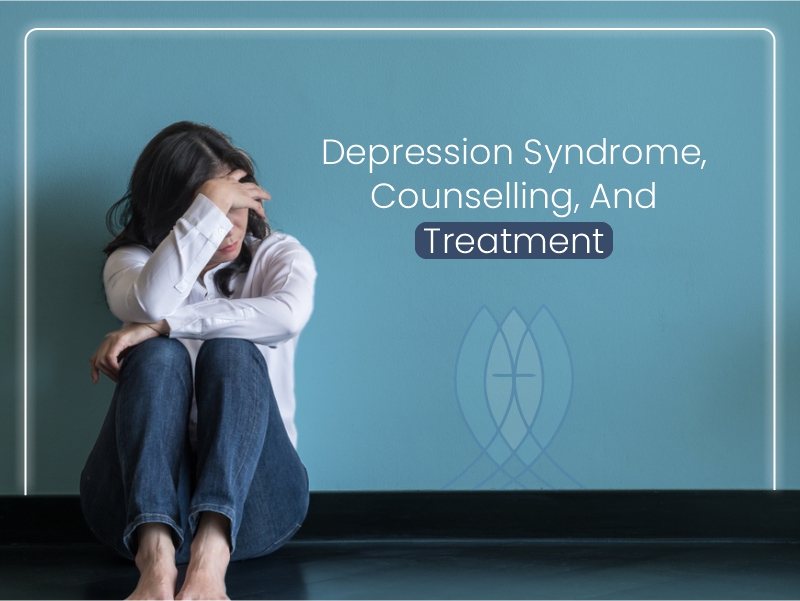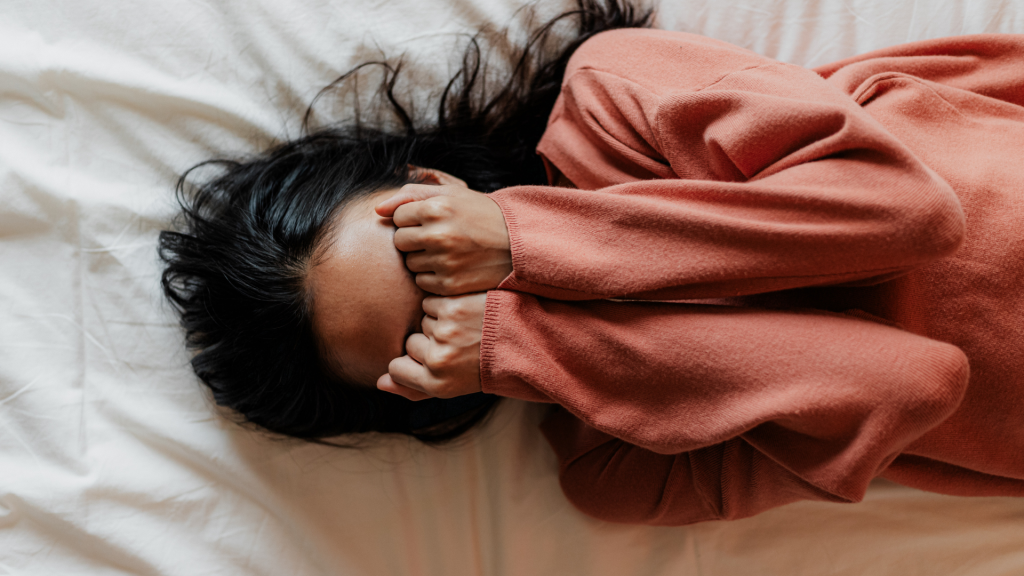Take the initial step toward healing with therapy for anxiety solutions
Take the initial step toward healing with therapy for anxiety solutions
Blog Article
Discovering Various Approaches in Counselling for Anxiety Problem for Lasting Change
When tackling anxiety problems, it's necessary to check out a range of counseling approaches. Each approach offers one-of-a-kind understandings and tools to help you manage your signs and symptoms effectively. You could discover that incorporating strategies can produce the very best outcomes. However, understanding the subtleties of these techniques is vital to cultivating long-term modification. What happens if the ideal combination could launch a new degree of emotional wellness for you?
Comprehending Anxiousness Conditions: A Short Review
Stress and anxiety disorders, which influence countless individuals worldwide, can considerably affect day-to-day live. You might experience frustrating feelings of concern or fret that appear uncontrollable. These feelings can bring about physical symptoms like a racing heart, sweating, or perhaps lightheadedness. Usual sorts of stress and anxiety problems include generalized stress and anxiety problem, panic attack, and social anxiousness condition. Each has unique indicators, however they all share a tendency to interrupt your regular and relationships.Understanding the source of your anxiety is crucial. It could stem from genetics, brain chemistry, or life experiences. Recognizing your triggers can assist you handle your actions much better. It is essential to keep in mind that you're not alone in this battle. Many individuals face similar difficulties, and looking for aid is a strong step towards sensation better. By discovering concerning anxiety conditions, you're currently on the course to understanding and handling your problem better.
Cognitive-Behavioral Treatment: Testing Adverse Idea Patterns

Recognizing Unfavorable Thought Triggers
When you experience moments of distress, recognizing the specific triggers behind your adverse thoughts can be crucial in managing anxiousness. Begin by taking note of situations that provoke sensations of concern or fear. Is it a congested room, an approaching deadline, or a discussion with certain individuals? Write down these instances in a journal. This will certainly help you recognize patterns in your reasoning. Also, notification physical experiences that accompany your unfavorable thoughts, like a racing heart or rigidity in your breast. By pinpointing these triggers, you obtain insight into what's sustaining your anxiousness. Recognizing these connections is the primary step in testing those ideas and inevitably gaining back control over your psychological responses.

Replacing Thoughts With Positives
Challenging negative thought patterns is a vital step in changing your mindset and decreasing anxiety. You might usually discover yourself entraped in cycles of insecurity or disastrous reasoning. As opposed to allowing these thoughts dictate your sensations, method replacing them with positive affirmations or reasonable alternatives. When you assume, "I can not handle this," shift it to, "I can take care of challenges one action at a time." This basic change can significantly influence your emotion. Routinely identifying and countering these unfavorable ideas aids produce a healthier interior dialogue. Keep in mind, it requires time and effort, however continually exercising this method can lead to long-term change, equipping you to encounter anxiousness with renewed confidence and strength
Structure Coping Strategies With Each Other
Changing negative thoughts is only the start of managing stress and anxiety successfully. To develop enduring change, you need to build coping techniques that equip you. Cognitive-Behavioral Therapy (CBT) helps you determine and test those purposeless thought patterns. With each other, you and your therapist can explore exactly how these thoughts effect your feelings and behaviors.Start by creating useful methods, like journaling or mindfulness workouts, that allow you to face anxiousness head-on. When you face your fears gradually, you'll discover to respond in different ways.

Mindfulness and Acceptance-Based Approaches: Growing Present-Moment Recognition
As you navigate the intricacies of anxiety, incorporating mindfulness and acceptance-based methods can significantly improve your capacity to grow present-moment recognition. By concentrating on the below and currently, you'll find that you can observe your thoughts and feelings without judgment. This practice aids you recognize your anxiety without feeling bewildered by it.Engaging in mindfulness workouts, such as deep breathing, body scans, or assisted meditations, enables you to ground yourself in your current experience. Acceptance-based strategies urge you to welcome your feelings instead of battle against them. They lose their power over you.Incorporating these methods right into your everyday regimen can change how you respond to anxiousness when you accept your sensations. You'll create durability and learn to browse difficult circumstances with greater convenience. Eventually, cultivating present-moment awareness lays the foundation for long-term modification, encouraging you to lead a much more satisfying life.
Exposure Treatment: Confronting Concerns Gradually
Exposure treatment helps you challenge your worries in a steady means, making it much less overwhelming. You'll find out techniques to face anxiety-provoking circumstances step by action, while also developing coping techniques to handle your reactions. This method encourages you to take control and reduce anxiety with time.
Gradual Direct Exposure Strategies
When facing anxiousness, gradually facing your concerns can be an effective method to restore control. This strategy, referred to as progressive direct exposure, involves gradually revealing yourself to the situations or items that activate your anxiety. Start with less challenging circumstances and slowly function your means up to more challenging ones. For example, if you hesitate of public talking, you could start by speaking before a mirror, then advance to sharing thoughts with a close friend, and at some point resolve a tiny group. Each step aids desensitize you to the fear, building your confidence in time. Bear in mind, it's necessary to rate yourself and celebrate small success as you move through this process, strengthening your capability to handle anxiousness properly.
Structure Coping Approaches
Structure efficient coping strategies is necessary for handling stress and anxiety, especially visit the website as you face your worries gradually. One effective approach is direct exposure therapy, where you begin by encountering your anxieties in a regulated fashion. Start with less daunting scenarios and gradually work your means as much as even more challenging scenarios. This steady exposure aids desensitize you to anxiousness causes, making them much less overwhelming.Incorporate relaxation methods, such as deep breathing or mindfulness, to calm your mind during exposure. Track your progress, commemorating small success along the way to boost your self-confidence. Keep in mind, it's okay to take your time; the goal isn't excellence but consistent improvement. By developing these techniques, you'll encourage on your own to navigate stress and anxiety and welcome life much more totally.
Psychodynamic Treatment: Uncovering Origin of Anxiousness
Psychodynamic therapy discovers the subconscious mind, revealing the root triggers of your anxiousness - Counseling services for anxiety. By examining your ideas, sensations, and past experiences, this approach helps you reveal underlying conflicts and unsettled concerns that may add to your current stress and anxiety. You'll collaborate with a therapist to explore childhood experiences, connections, and emotional patterns that shape your actions today.As you obtain insight into these deeper layers of your psyche, you'll start to recognize exactly how past events influence your present habits. This understanding can cause catharsis, permitting you to refine feelings you may have suppressed.Through the restorative partnership, you can additionally determine find out defense reaction that may have established gradually, using a clearer path to change. Ultimately, psychodynamic therapy equips you with the devices to resolve your stress and anxiety at its core, advertising long-term makeover in your psychological wellness
Integrative and Holistic Techniques: Integrating Techniques for Greater Efficacy
Incorporating different restorative techniques can boost your trip toward handling stress and anxiety better. By integrating elements from cognitive-behavioral treatment, mindfulness methods, and holistic strategies, you can produce a customized strategy that resolves your special needs. You might utilize cognitive-behavioral techniques to test adverse thought patterns while including mindfulness exercises to ground yourself in the existing moment.Additionally, checking out all natural practices such as yoga or reflection can promote leisure and reduce stress and anxiety signs and symptoms. This blend permits you to develop higher self-awareness and resilience.Experimenting with these varied approaches can assist you uncover what reverberates most with you. Keep in mind, it's concerning finding a synergy that functions, as opposed to adhering to a single method. This integrative strategy not just supplies prompt alleviation but additionally fosters long-lasting skills for handling anxiousness, empowering you to recover control over your life.
The Function of Assistance Solutions: Structure Durability Through Connection
While it may seem that handling stress and anxiety is a singular trip, having a solid support group can play an important function in your resilience. Surrounding yourself with empathetic close friends, family members, or assistance teams develops a secure room where you can freely share your experiences and sensations. You remind on your own that you're not alone in this struggle.These connections provide motivation and can offer functional coping techniques that have functioned for others when you link with others. It's likewise an opportunity to obtain viewpoint; friends can aid you see situations differently, reducing sensations of isolation.Moreover, emotional assistance promotes a sense of belonging, which can greatly relieve anxiousness symptoms. By leaning on your support group, you can develop strength and deal with challenges more effectively. Bear in mind, connecting for assistance is a sign of stamina, and it can make all the difference in your trip toward handling anxiety.
Often Asked Questions
What Are the Usual Symptoms of Stress And Anxiety Disorders?
You may experience restlessness, tiredness, difficulty concentrating, impatience, muscle stress, and sleep disturbances. Physical signs and symptoms can include fast heartbeat, sweating, and trembling. Acknowledging these indications early can assist you look for suitable assistance and therapy.

How Much Time Does Treatment Generally Last for Stress And Anxiety Problems?
Treatment for anxiety disorders commonly lasts anywhere from a couple of weeks to a number of months. It actually depends on your specific demands, progression, and the techniques your therapist utilizes to help you handle your anxiety imp source successfully.
Can Medicine Be Used Together With Treatment for Anxiety?
Yes, drug can certainly be made use of together with therapy for anxiousness. Combining both strategies typically enhances therapy effectiveness, aiding you take care of signs while exploring underlying issues with therapy. Always consult your doctor for customized advice.
Are There Self-Help Methods for Handling Anxiousness?
Yes, there are numerous self-help techniques for taking care of stress and anxiety. You can exercise mindfulness, engage in normal workout, maintain a balanced diet plan, establish a routine, and make use of deep breathing methods to help in reducing anxiety signs and symptoms effectively.
Exactly how Do I Know if I Need Expert Assistance for Anxiety?
You need to think about looking for expert assistance for stress and anxiety if it disrupts daily life, triggers significant distress, or if self-help strategies aren't functioning. Trust fund your reactions; reaching out can result in better coping skills and assistance. Usual types of anxiety disorders consist of generalized anxiety condition, panic disorder, and social stress and anxiety condition. When you run into moments of distress, identifying the particular triggers behind your adverse thoughts can be vital in taking care of anxiousness. Replacing unfavorable ideas is only the start of managing anxiety properly. By examining your ideas, sensations, and previous experiences, this technique aids you uncover underlying disputes and unresolved issues that might add to your existing anxiety. It's also a possibility to gain viewpoint; buddies can help you see situations differently, lowering feelings of isolation (Counseling services for anxiety).Moreover, emotional assistance promotes a sense of belonging, which can substantially relieve stress and anxiety symptoms
Report this page